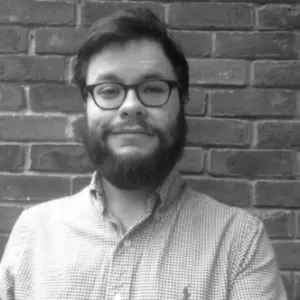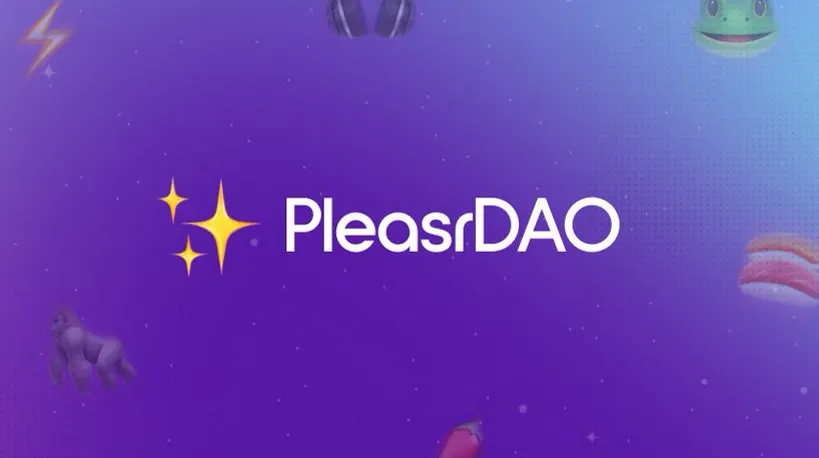In brief
- PleasrDAO bought the Snowden NFT because its members endorse transparency, just like Snowden.
- The DAO will continue to buy and commission NFT artworks, invest in decentralized finance, and run an incubator to advance its mission.
- Pplpleasr, the digital artist whose NFT the DAO bought in March, has joined PleasrDAO as an honorary member.
A disparate band of NFT art collectors is harnessing the power of smart contracts to create a decentralized digital art investment empire. Their latest purchase: an NFT minted by NSA whistleblower Edward Snowden for $5.4 million.
“If people haven’t started paying attention, they should,” digital artist pplpleasr told Decrypt from her home in Taiwan. She’s responsible for the decentralized autonomous organization (DAO) behind the sales. It’s called PleasrDAO, and formed last month when a group of anonymous buyers used smart contracts to pool money to buy her NFT for $525,000.
Since then, the DAO has ventured beyond her artwork and is experimenting with decentralized art collecting.
And two weeks ago, pplpleasr joined the DAO as an “honorary member.” For the Snowden auction, she stayed up all night and tapped a DeFi contact to help the DAO reach the $5.4 million figure they needed to secure the exclusive NFT.
Coordinated action
Even though most of its members have never met, and some of them remain anonymous, PleasrDAO has a philosophy. The DAO’s passionate about decentralization and using the DAO to benefit society—not just profit, pplpleasr said.
“There are many NFT sellers who are just in for the capital; they just want to cash in on the NFT craze and sell back into fiat,” she said. “That's not constructive for cryptocurrency as a whole.”
PleasrDAO bought the Snowden NFT because Snowden, who blew the whistle on the NSA’s surveillance program in 2013, changed the rules of the game for transparency, according to the DAO—an ideal its members staunchly support.
“Snowden represents the cypherpunk ethos that I identify with—transparency for all,” Mariano Conti, a member of PleasrDAO, told Decrypt. “Blockchains also give you that.”
The proceeds from the Snowden NFT sale will go to a charity, the Freedom of the Press Foundation. “And it makes sense: Ethereum is also all about freedom—it’s freedom from banks,” Conti told Decrypt.
How PleasrDAO works
PleasrDAO distributes the ownership of the DAO in the form of tokens. That gives every member a fraction of its assets—the two NFTs and any funds in the treasury. Each member participates in the DAO’s governance through a group chat.
And if someone were to exit the DAO, their token would be up for grabs internally. “A lot of members would be thrilled to buy it,” Jamis Johnson, the chief pleasing officer of PleasrDAO told Decrypt. He coordinates and manages the strategy of PleasrDAO; his tongue-in-cheek title is “pretty much the CEO role, but more fun.”
“I'm kind of herding cats—all of these extremely successful people, the superheroes of DeFi, are particularly difficult to wrangle.”
A plan for the future
After buying the Snowden NFT, PleasrDAO’s future direction is still “amorphous,” said Johnson. But “the three spokes of the wheel” will be art collection, angel investment, and incubation.
The DAO might spend some of the treasury funds on building a smart contract, “something novel that can be a full-blown protocol,” Johnson said. It could be a one-off project like Mad Dog Jones's NFT replicator, he explained, referring to NFT artwork of machine that produces copies of NFTs "prints."
But the bulk of the market could collapse, he cautioned, estimating that only 1% of NFTs will return “handsome profits” to their owners.
PleasrDAO’s betting—and bidding—on that 1%. But it’s the relentless passion that drives it, and any future monetary returns would be a sweet side-effect.
Daily Debrief Newsletter
Start every day with the top news stories right now, plus original features, a podcast, videos and more.

